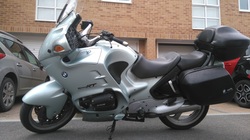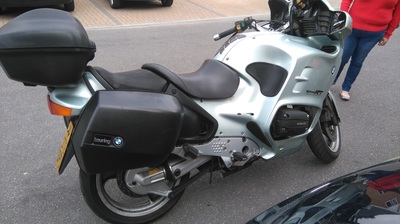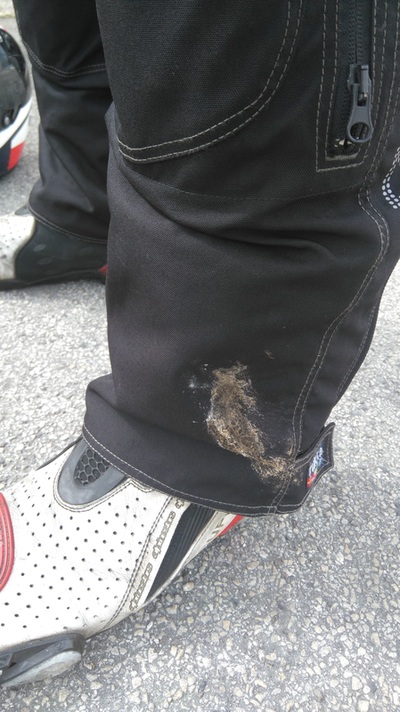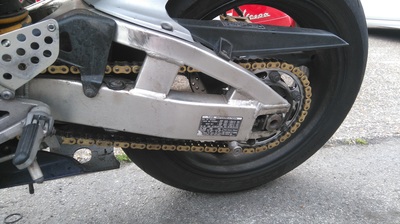
The brakes were okay if not amazing, but they were slowing down a big old barge of a bike so that can be forgiven. It has loads of features like ABS and a radio! A flippin radio. Not bad for 1995. If I still needed to ride up and down the motorway for work then I could do a whole lot worse than this. Powered with a full on drive shaft, the bike trundled along and just to test her out a bit, I took her down the awesome Wimborne to Cranborne Road, which is one of the best roads in Dorset. The Beemer took it in her stride.
During the ride, a pheasant decided that I and the ugly Beemer were the last things he wanted to see. Thankfully, for me anyway, the bird just bounced off the left side of the bike and left its last meal all over my leg having clearly panicked at the very last moment. The Beemer didn't even notice. Really an awesome piece of kit.
I find the responses of those, some of whom are suggesting, others demanding the cessation of the Isle of Man TT races very interesting. On the whole, the people who are talking about this dramatic change have rarely raced on a circuit, let alone the roads and so, in my opinion, have no right to make comment.
The races at the Isle of Man stand well above the rest, as the most dangerous series of races across the motorsport calendar. Each and every rider who has ever sat on the grid of a road race is there because they want to be there. Racing is, financially, very expensive, however, they are all fully aware of the dangers, but still they wouldn't want to be anywhere else.
I recently saw a very interesting statistic regarding the number of deaths of climbers who have died attempted to make the summit of Everest. Since 1922, sadly, approx 280 people have died on the mountain. Its an approximation as several bodies have never been found. This is just one mountain and for the record, when you die so high, its almost impossible to recover the body, so most of them are still up there. We mustn't forgot the other dangerous peaks. Annapurna, which has claimed 61 climber lives compared to the 200 or so who have reached its peak. www.grindtv.com states that for every three people who reach the top, one climber attempting it will die. Then there is K2, Everest's neighbour and the second highest mountain in the world, where on just one day in August 2008, 11 climbers were killed, adding to the eighty climbers who have died since 1939. I could go on and give you a list for Nagna Parbat in Pakistan or Kangchenjunga in Nepal but you get the point. With all these statistics and despite all these deaths, the call to cancel mountain climbing doesn't get very loud.
We all know biking is dangerous and race racing even more so, but so is life. You can die getting out of the bath, you can die crossing the road or you can die eating peanuts. These deaths are absolutely tragic and my heart goes out to the family and friends of those riders, but they were doing what they loved and it's not for you, or indeed me, to tell anybody what they can or cannot do. We should all remember that.






 RSS Feed
RSS Feed
